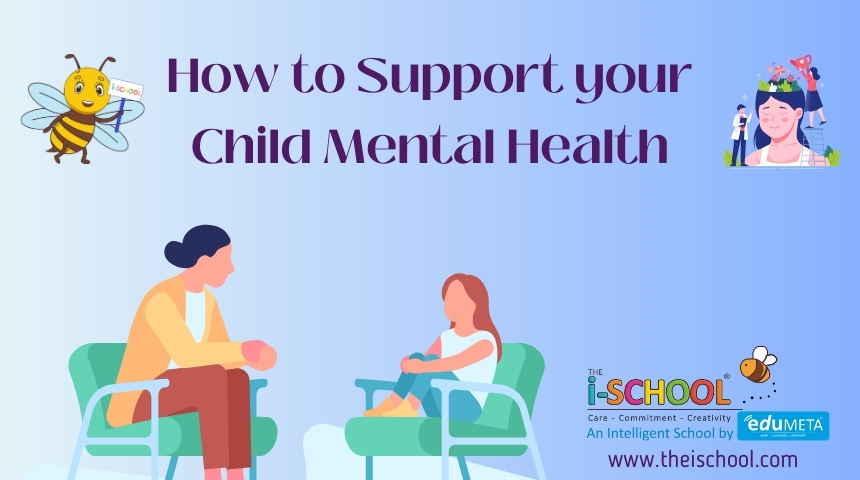How to Support your Child Mental Health

Just like their bodies, children’s minds and emotions need nurturing and support to grow strong and healthy. Child mental health is a crucial aspect of well-being, affecting how children learn, behave, and relate to others. As a parent or caregiver, you play a vital role in fostering your child’s mental health. Here at eduMETA THE i-SCHOOL, we explore some simple ways you can support your child’s mental and emotional well-being:
Open Communication is Key:
- Create a Safe Space: Let your child know they can talk to you about anything, no matter how big or small. Actively listen without judgment and create an environment where they feel comfortable expressing their feelings.
- Talk It Out: Encourage regular conversations about their day, their worries, and their joys. Ask open-ended questions that go beyond “yes” or “no” answers.
- Validate Their Feelings: Let them know their feelings are valid, even if you don’t always agree. Phrases like “It sounds like you’re feeling frustrated” or “I understand why you’re upset” can go a long way.
Building Resilience:
- Encourage Healthy Habits: Regular sleep, nutritious meals, and physical activity are essential for both physical and mental health.
- Help Them Cope: Teach them healthy coping mechanisms for dealing with stress and difficult emotions. Deep breathing exercises, journaling, or creative outlets can be helpful tools.
- Set Clear Boundaries & Expectations: Provide clear and consistent rules at home to create a sense of security and predictability.
Nurture Their Confidence:
- Positive Reinforcement: Celebrate their achievements, both big and small. Focus on effort and positive behaviors, not just perfect results.
- Unconditional Love: Let your child know they are loved and accepted for who they are, regardless of their mistakes or shortcomings.
- Help Them Find Their Strengths: Encourage them to explore their interests and talents. Providing opportunities to participate in activities they enjoy can boost their confidence and self-esteem.
When to Seek Professional Help:
While you can provide significant support, there may be times when professional help is needed. Don’t hesitate to seek guidance from a therapist or counselor if your child is experiencing:
- Persistent anxiety, sadness, or anger
- Changes in behavior or sleep patterns
- Difficulty concentrating or learning
- Social isolation or withdrawal
Remember, you are not alone! Many resources are available to support your child’s mental health journey. eduMETA THE i-SCHOOL offers resources and information to empower parents and caregivers. Additionally, consider connecting with local mental health organizations or support groups.
By providing a loving, supportive environment and encouraging open communication, you can make a significant contribution to your child’s mental health and well-being. Together, we can help them build strong minds and bright futures!
